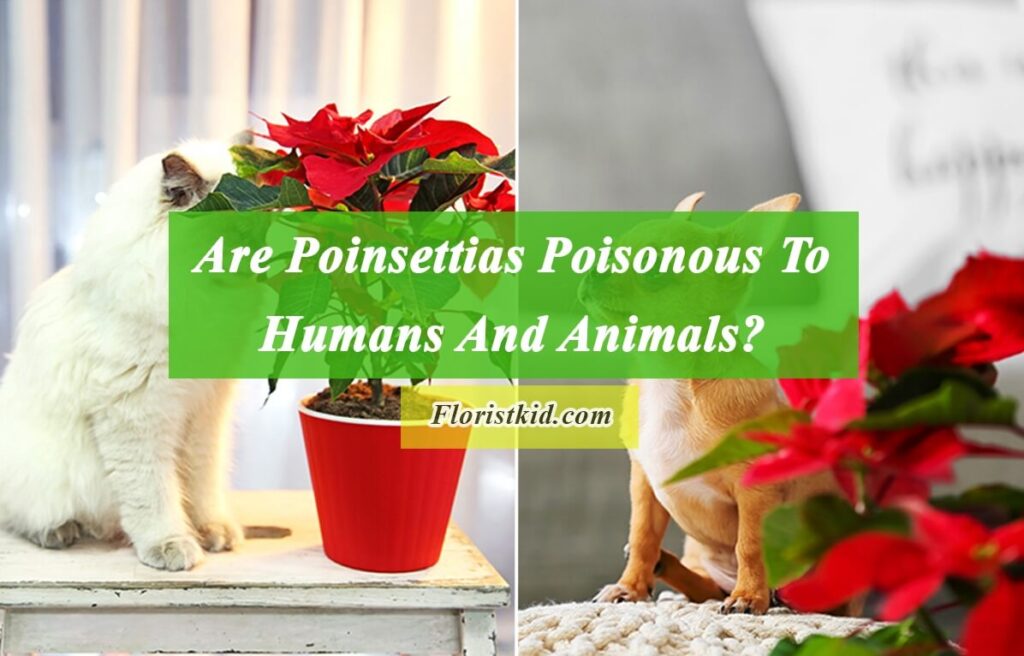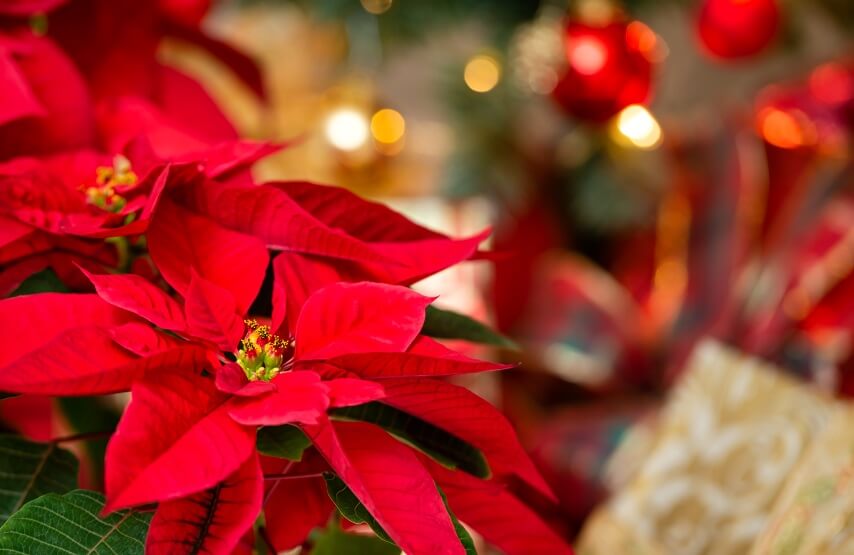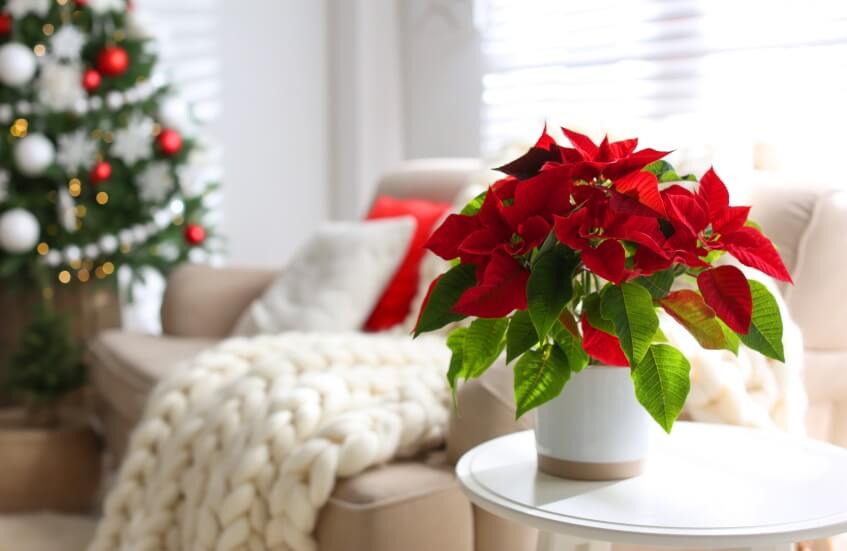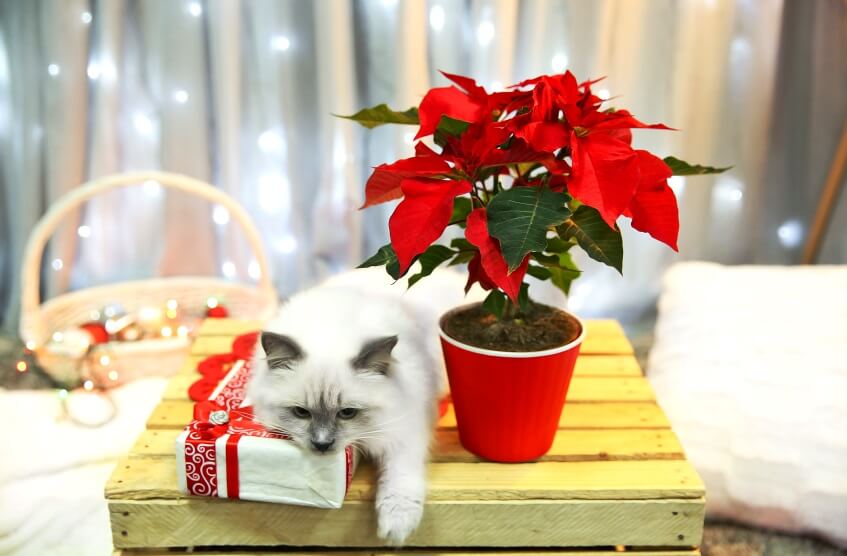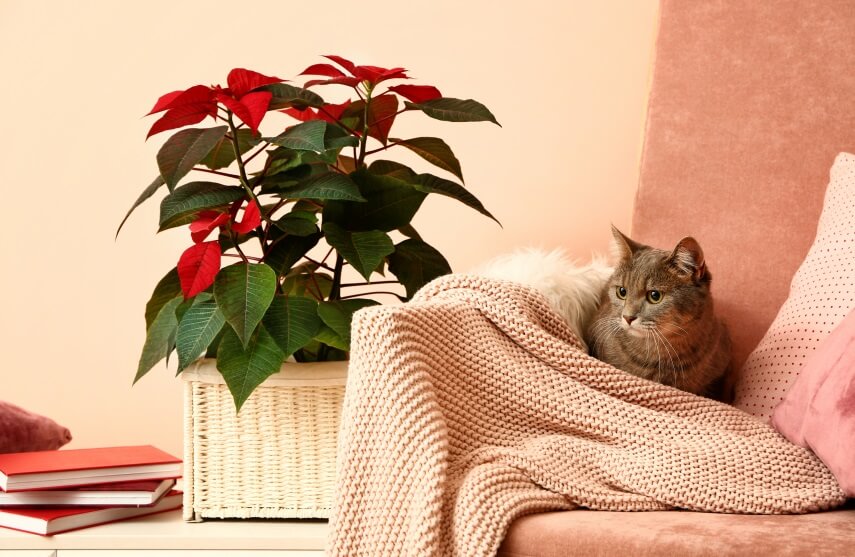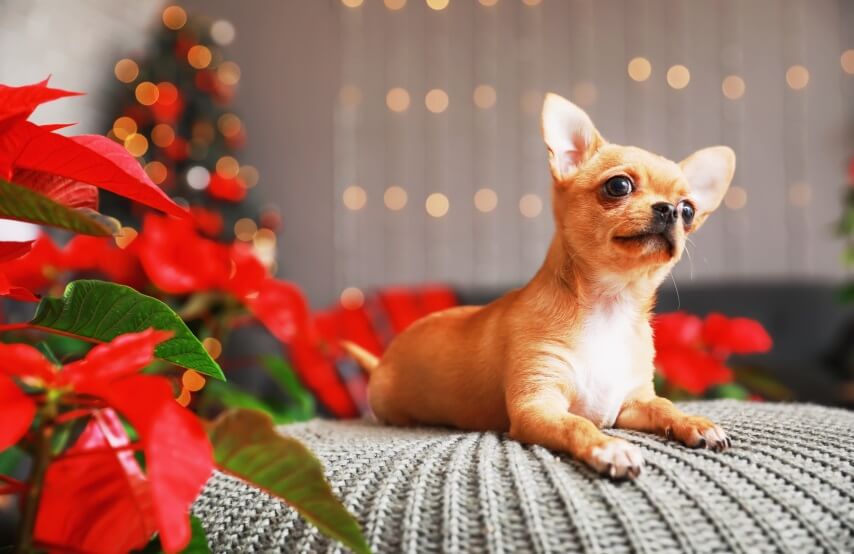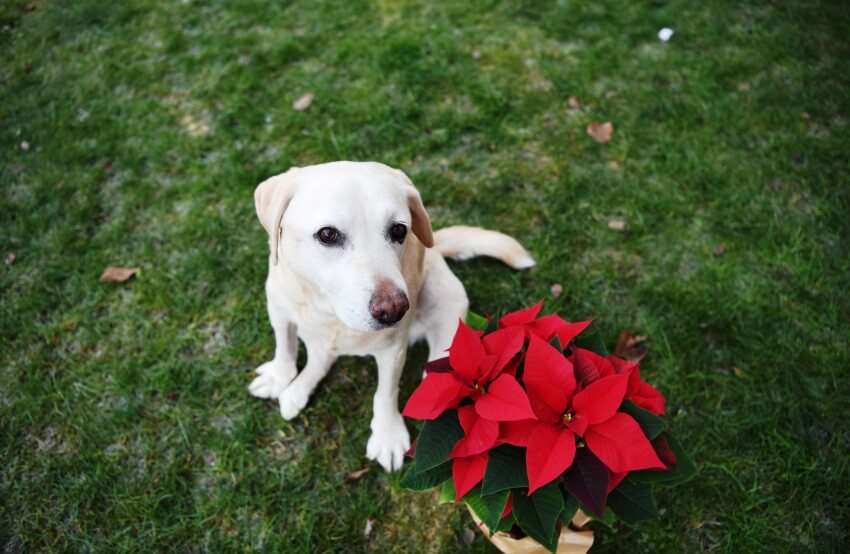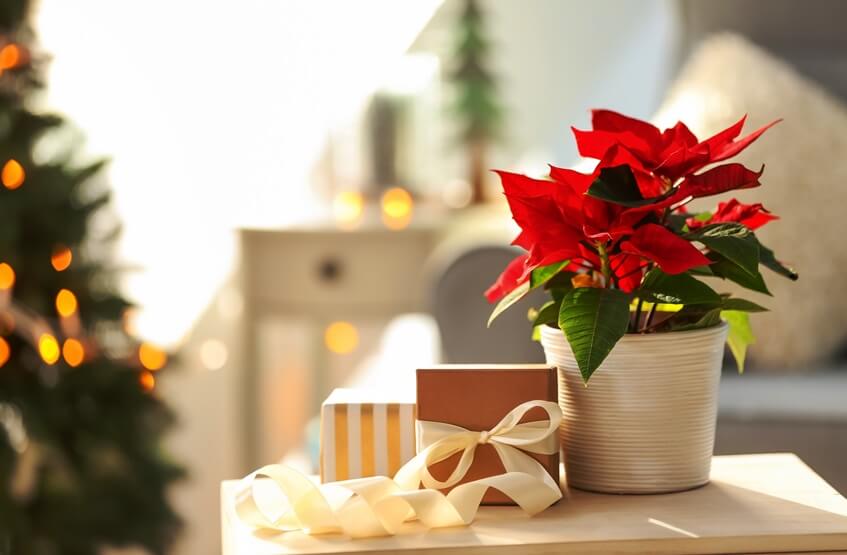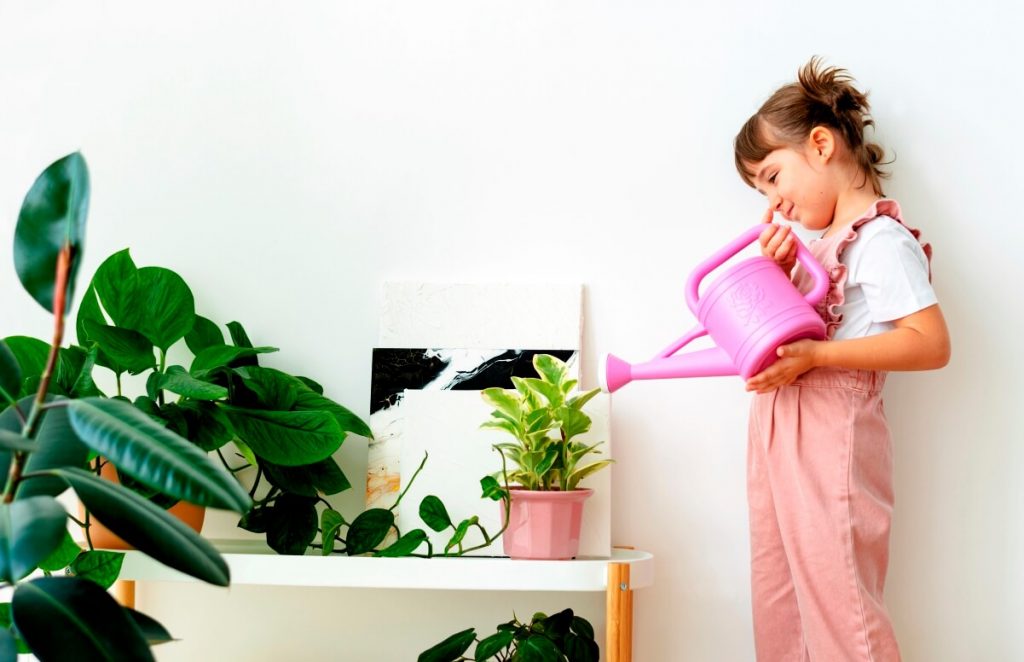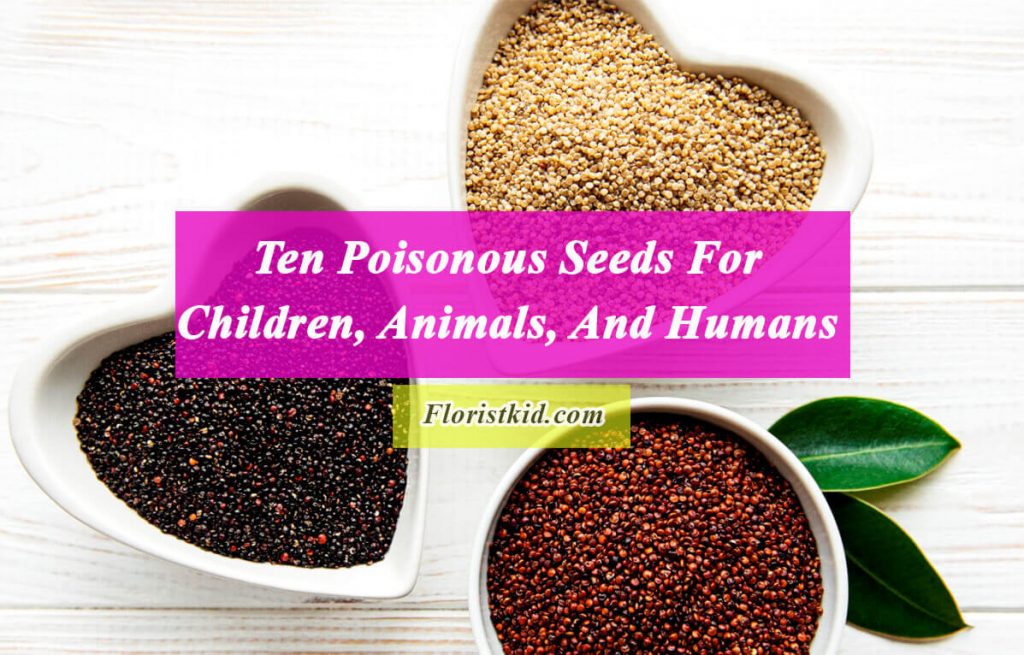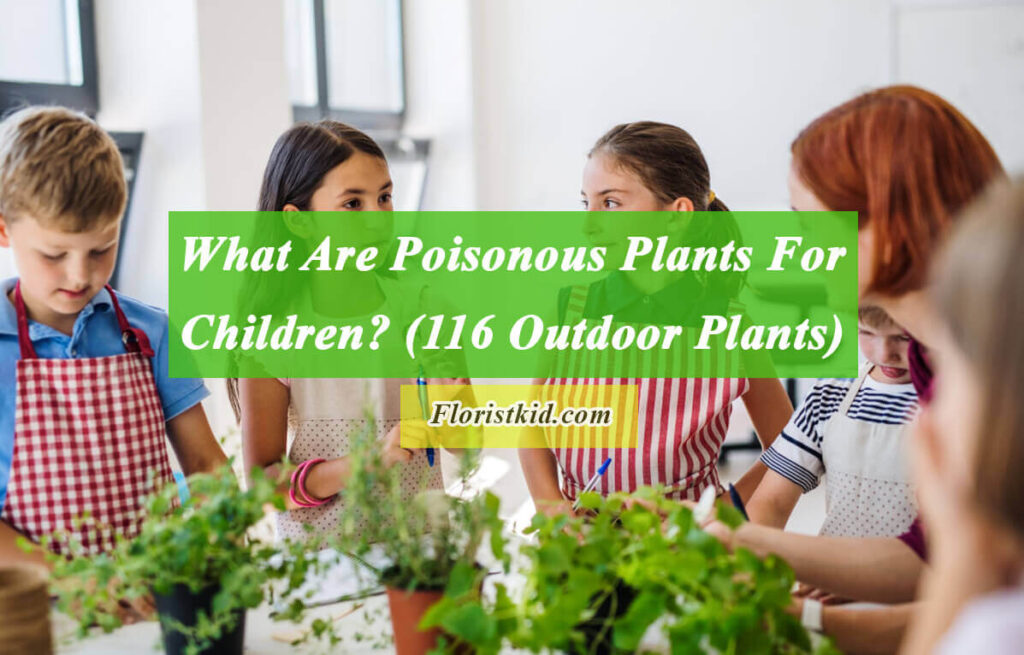The poinsettia (Euphorbia pulcherrima) is a popular plant known for its vibrant red and green foliage, particularly during the winter holidays, particularly Christmas. They are often used in decorations and gift-giving during this time. Poinsettias have large, colorful bracts (modified leaves) surrounding small, yellow flowers in the center. While red is the most common color, there are also poinsettias with white, pink, and variegated bracts.
There is a persistent belief that poinsettias are highly toxic to humans. This article aims to dispel the myth surrounding the toxicity of poinsettias by providing evidence-based information on their actual level of toxicity and the potential risks associated with their consumption.
If you are interested in this topic, you can also read
<<Are Hyacinths Poisonous? >> and <<Is Coleus Poisonous? >> articles.
Toxic Components Of Poinsettia
Poinsettias have a milky sap called latex that can cause some irritation. However, it is not the same as the latex in rubber, which can cause allergic reactions for some people. This sticky liquid can make your skin itchy or cause mild allergies if your skin is easily irritated or allergic to latex. So, it is recommended to be careful when dealing with poinsettias, especially if you are allergic to latex [1, 2, 3].
There are poisons in the milky sap of the poinsettia, and the potential harm they cause is owing to a compound called diterpene. If you eat a lot of it, it can cause skin irritation and digestive problems.
Are Poinsettias Poisonous To Humans?
Poinsettia is usually not poisonous to humans since, it is unlikely that people accidentally eat poinsettia leaves or touch the sap. Typically, if you come into contact with the sap, you may experience mild symptoms like irritated skin or red eyes, similar to a mild allergic reaction. However, it is important to understand that people who have allergies to latex or other plants in the Euphorbiaceae family might be more likely to have reactions.
Case Studies
Some studies have found that people may experience minor symptoms if they eat poinsettia plants. Eating a lot of leaves can make small children or pets feel stomach problems, including nausea or vomiting. However, these cases are uncommon, and no deaths have been reported due to poinsettia poisoning [4].
Prevention And Safety Measures
While poinsettias are usually not very poisonous, it is recommended to be careful to reduce the chances of any harm, especially if you have kids. Think about the following actions or steps:
- If you have small kids or pets that might want to chew on plants, keep poinsettias where they cannot get to them. You could also use artificial plants instead, which are safer.
- Remember to wash your hands well after touching poinsettias. This will help prevent any potential irritation from the sap. Also, do not touch your eyes when touching poinsettias to avoid eye irritation.
- If you or someone in your house is allergic to latex, stay away from poinsettias to avoid any possible allergies.
Are Poinsettias Poisonous To Cats?
If you own a cat, you might have been told that poinsettias can harm them. Although the plant can cause mild gastrointestinal discomfort if they eat it, poinsettias are mildly poisonous to cats. But it is important to be careful and know that there might be dangers.
Symptoms Of poisoning In Cats
When a cat touches poinsettias, especially if it eats the leaves or stems, it may display some mild gastrointestinal symptoms. These symptoms may include drooling, vomiting, diarrhea, and possible skin irritation or mild allergic reactions. It is important to note that severe toxicity cases are extremely rare.
Precautions
- To minimize the risk of accidental ingestion, it is recommended to place poinsettias in an area that is inaccessible to your cat. Consider using hanging baskets, high shelves, or other elevated positions where your cat cannot reach.
- If you have a particularly curious cat or one with a history of indiscriminately nibbling on plants, use other pet-friendly decorations instead of poinsettias. You can choose cat-safe plants, like spider plants or Boston ferns, that add festive charm without posing a significant threat to your cat’s health.
- It is essential to keep a watchful eye on your cat during the holiday season and look out for any signs of illness or discomfort. If you notice any unusual behaviors, consult with your veterinarian immediately.
Are Poinsettias Poisonous To Dogs?
The myth that poinsettias are harmful to dogs is probably the result of an urban legend that has been spread over time. The popular belief is that if a dog ingests poinsettia leaves, it could lead to severe toxicity or, in extreme cases, even death. However, these claims lack scientific evidence and have largely been debunked by veterinary experts. Contrary to popular belief, poinsettias are generally considered to have low toxicity levels for dogs.
Symptoms Of poisoning In Dogs
The sap found in poinsettia’s leaves stems, and flowers can cause mild gastrointestinal upset if ingested in large quantities. The most common symptoms observed might include drooling, vomiting, or diarrhea. However, these symptoms are typically mild and resolve on their own within a short time. A dog is unlikely to get sick or die from eating a lot of poinsettia plant material.
Precautions
It is suggested to be careful and take steps to avoid any problems for your dog when you have poinsettia:
- Choose strategic placement: Keep poinsettias out of your dog’s reach by placing them on high shelves, tables, or hanging baskets.
- Monitor your dog: If you have an overly curious or mischievous dog, it’s advisable to keep an eye on it When it is near poinsettias.
- Train your dog: Teach your dog to avoid plants by utilizing positive reinforcement and redirection techniques.
- Consider alternatives: If you are concerned about your dog’s safety, opt for artificial poinsettias or other pet-friendly festive plants.
- Consulting a veterinarian: If your dog accidentally consumes poinsettia leaves or shows any concerning symptoms, consult a veterinarian. Even though poinsettia exposure is rarely a cause for alarm, an expert opinion will help address any specific concerns and provide appropriate guidance based on your dog’s health history and symptoms.
Conclusion
In conclusion, the poinsettias are slightly poisonous to humans and animals. While minor side effects may occur if ingested, they are rather rare and not life-threatening. The beautiful poinsettia plants can be safely enjoyed as part of your holiday decor, providing festive cheer without posing significant risks to human or animal health. With proper handling and care, the poinsettia can be celebrated as a symbol of joy during the holiday season.

